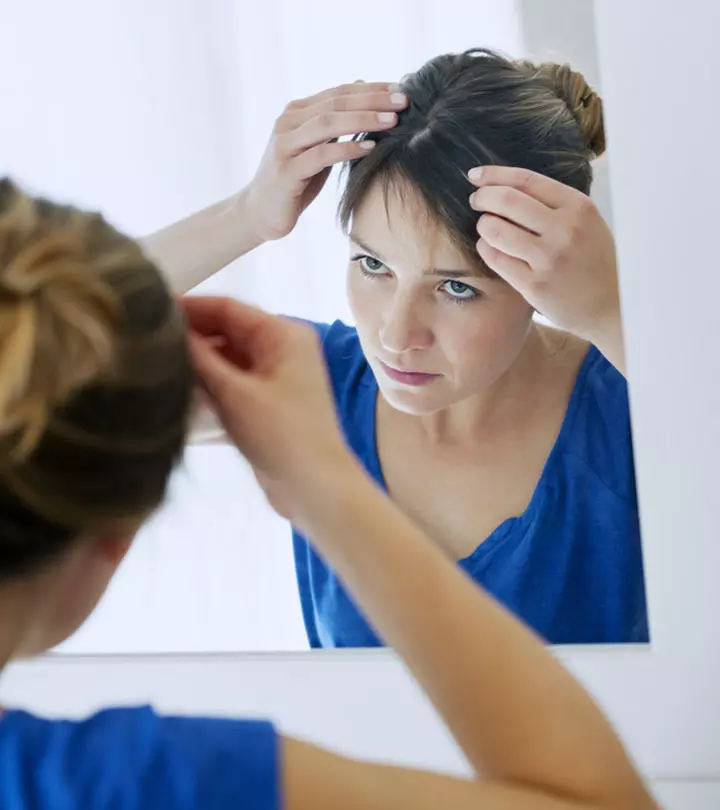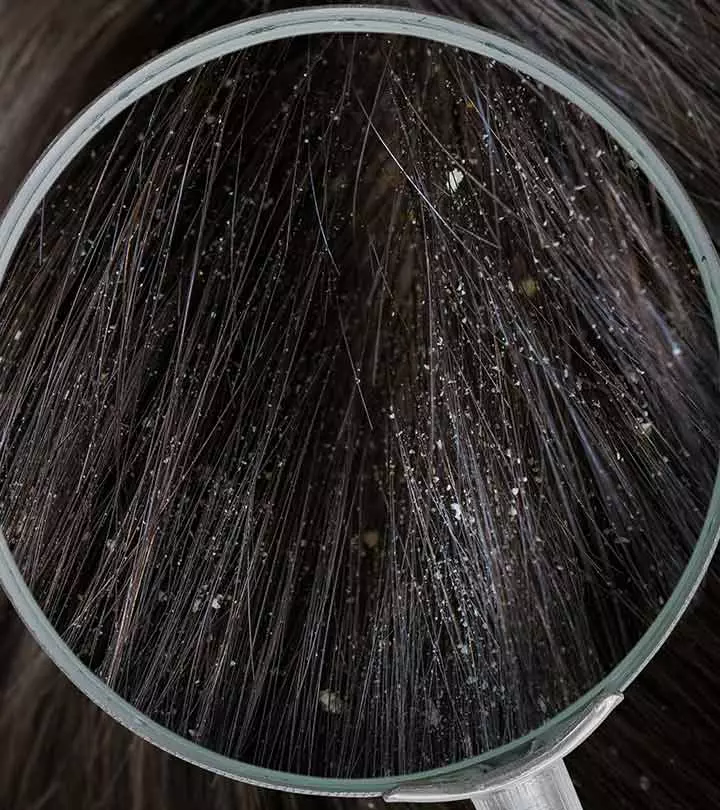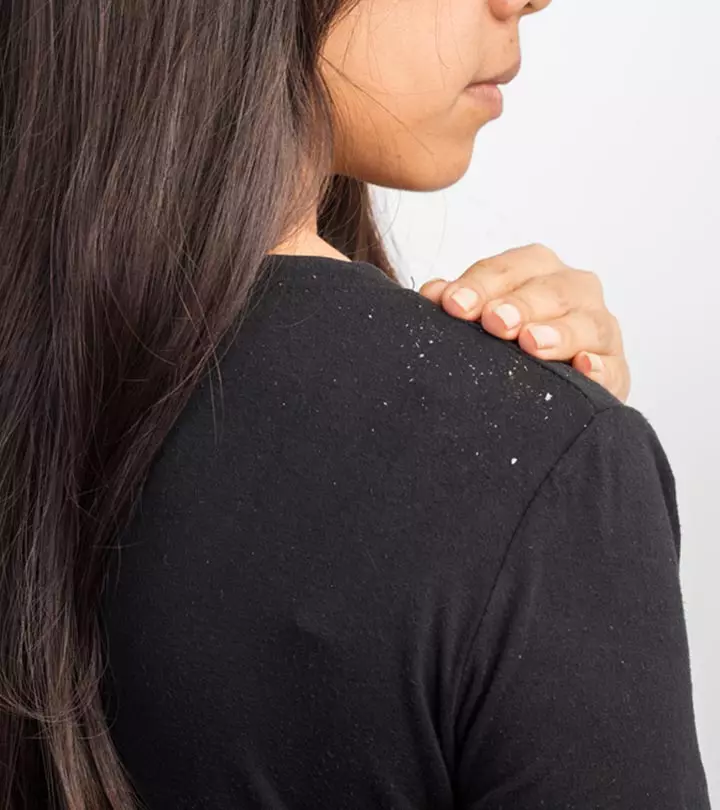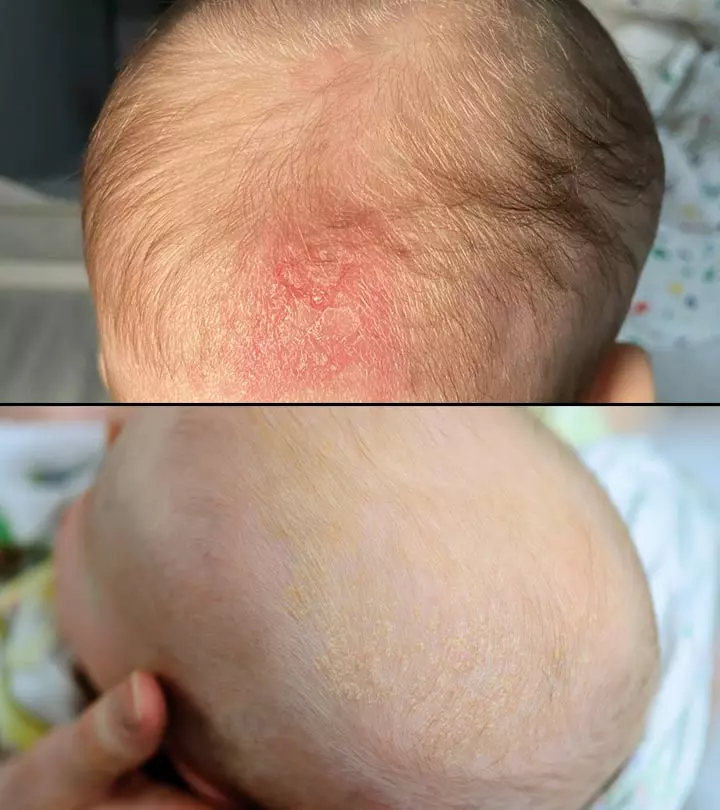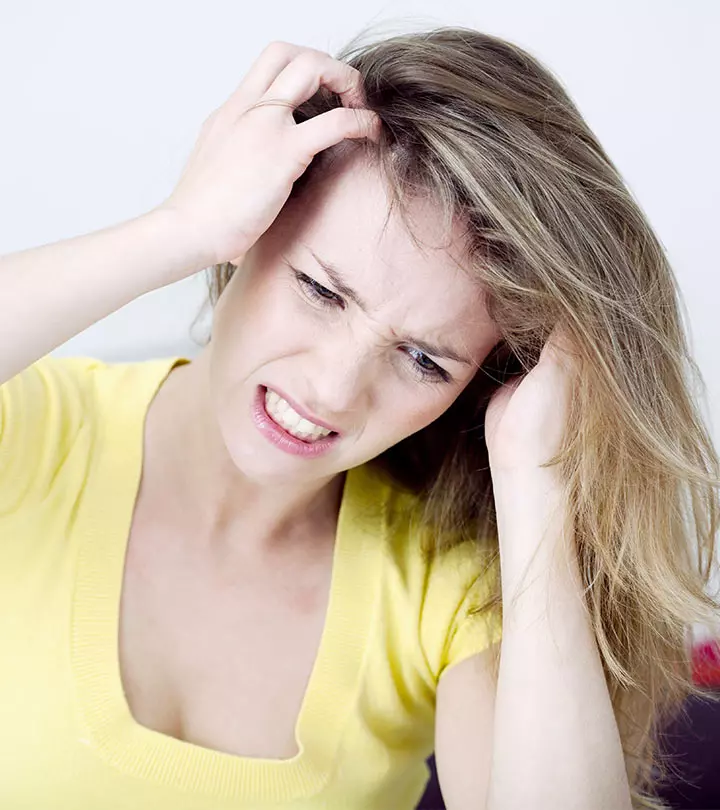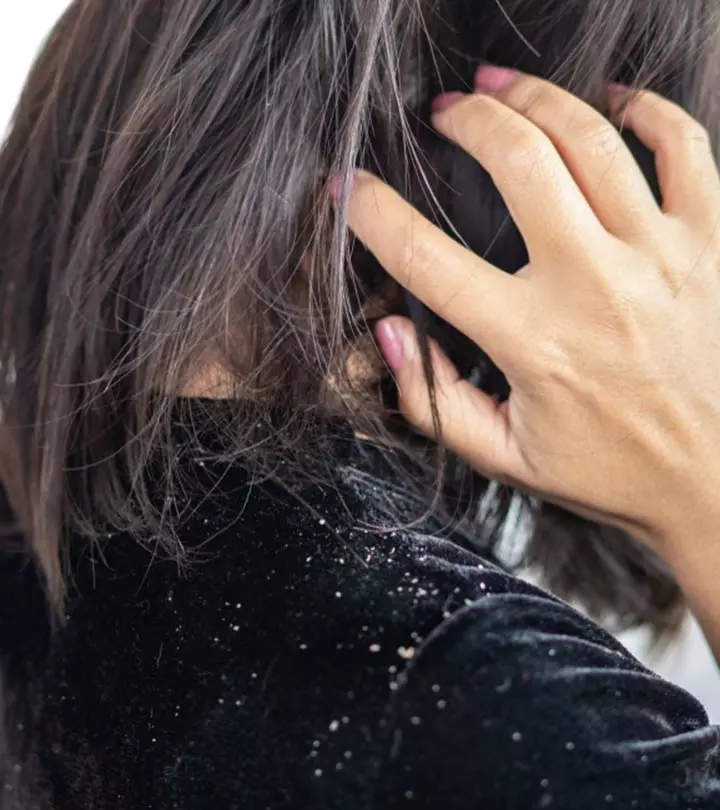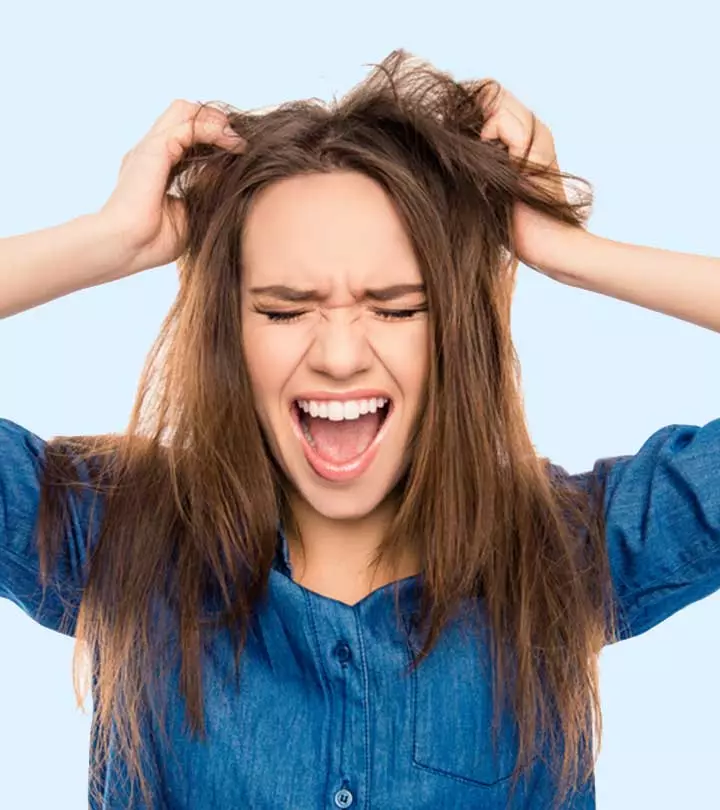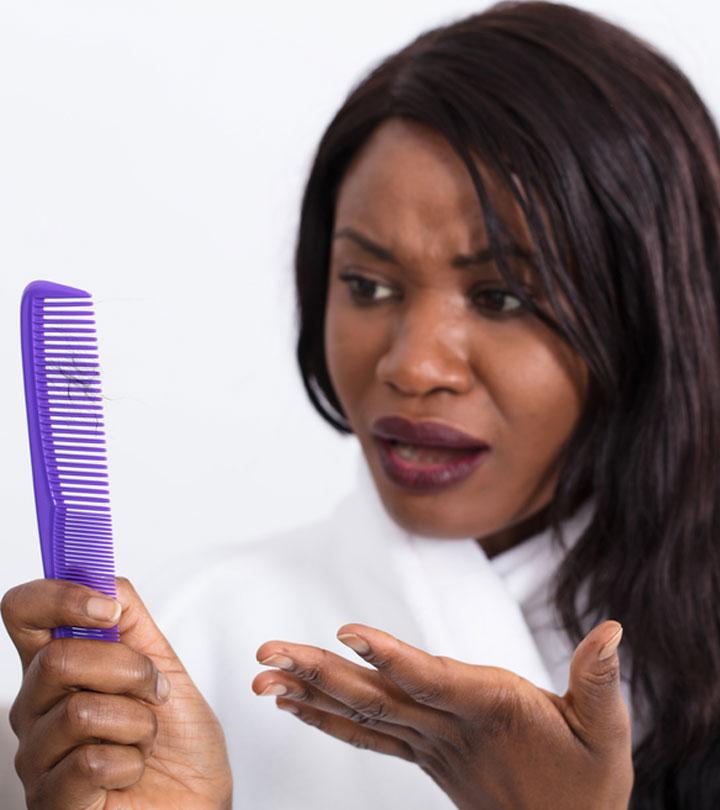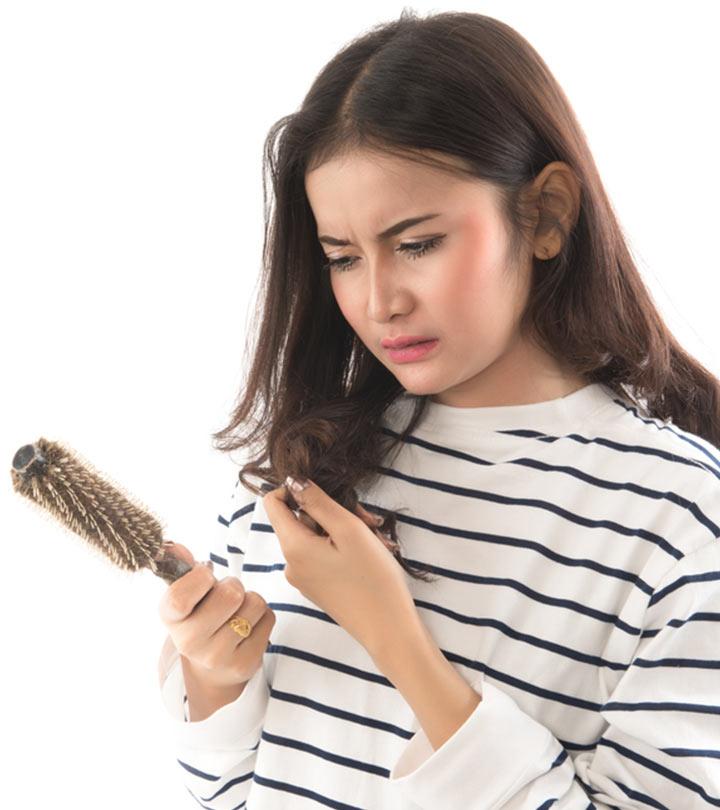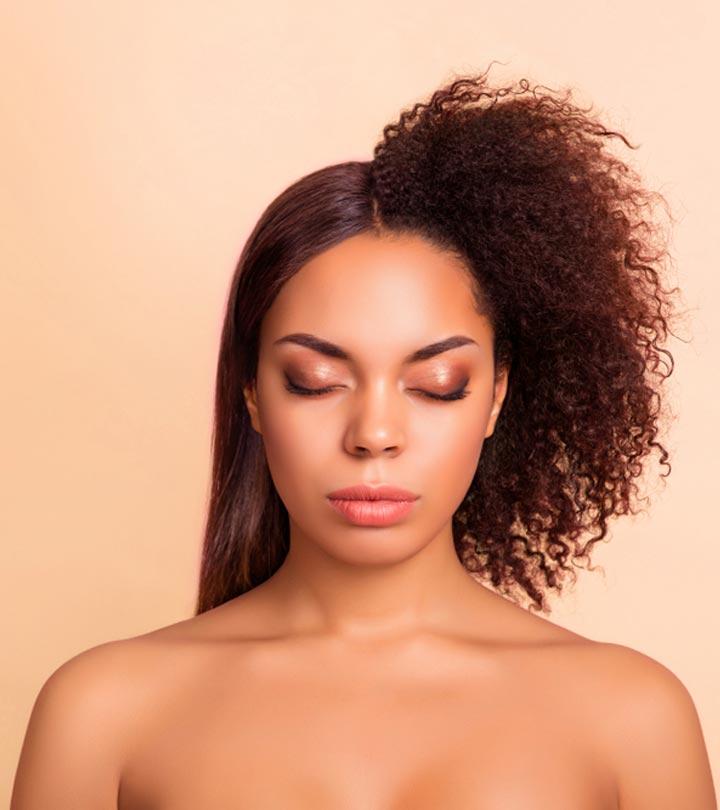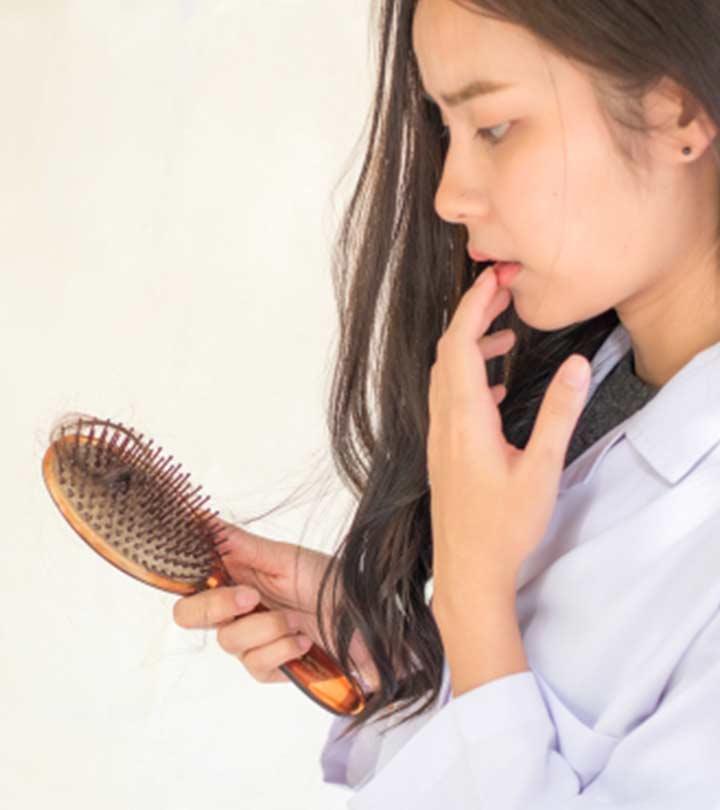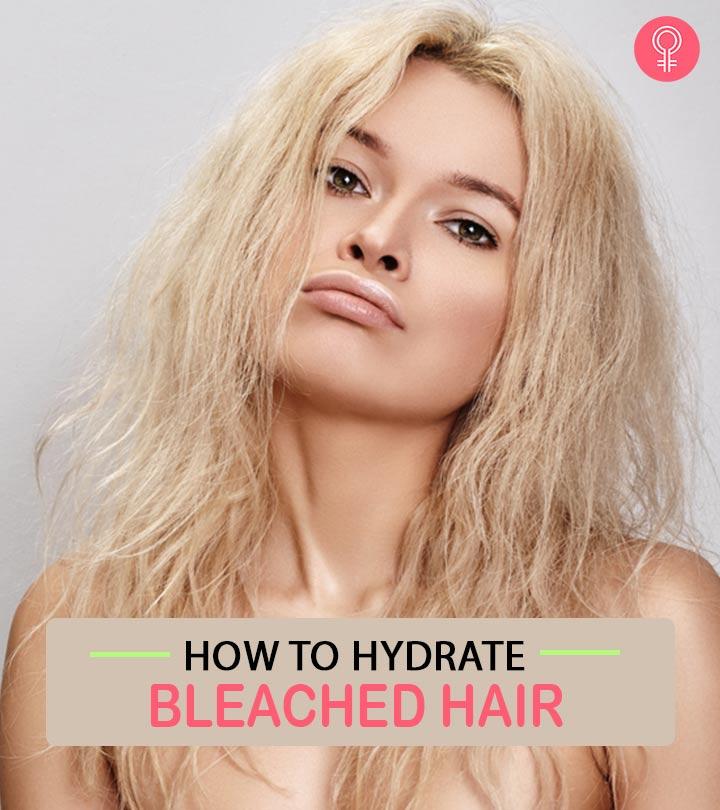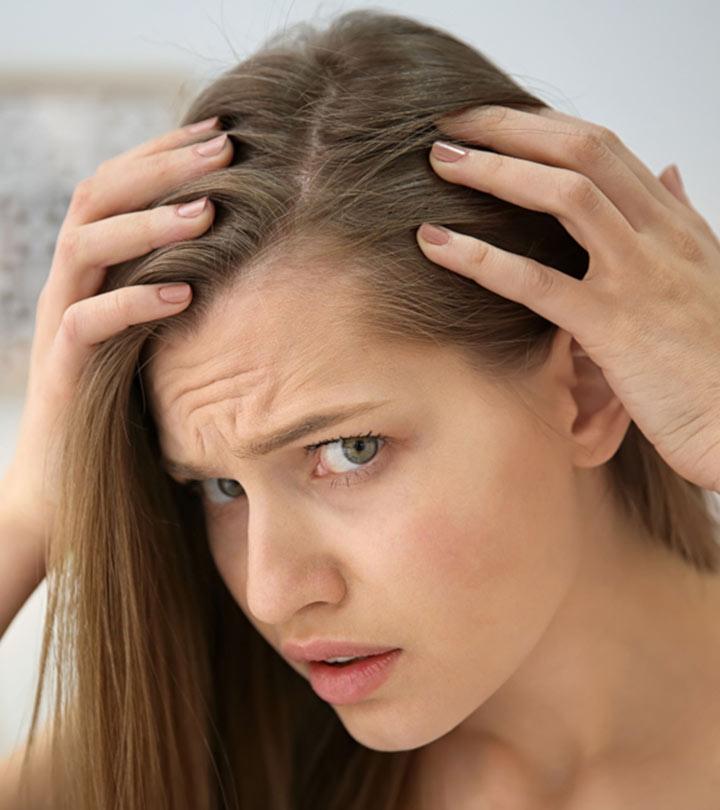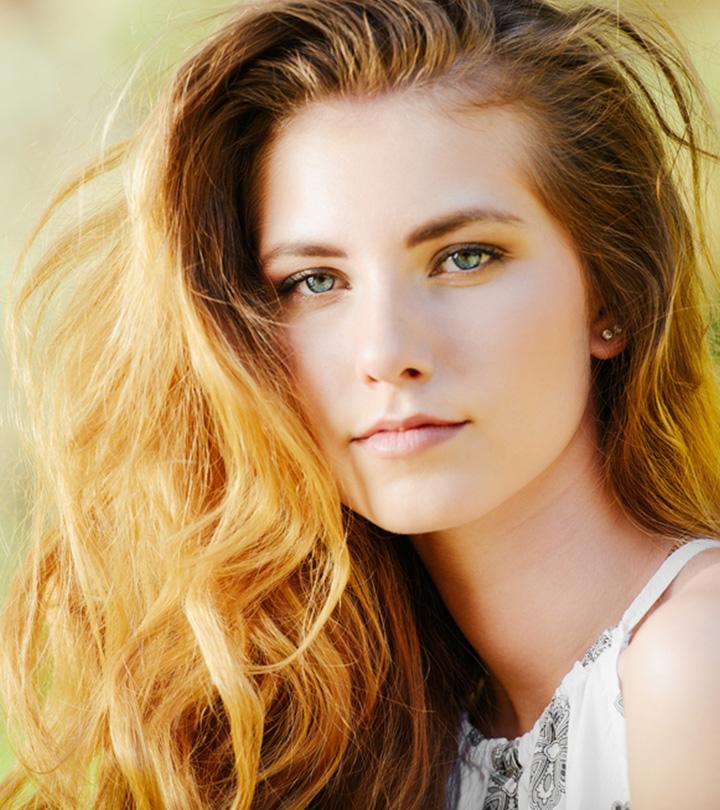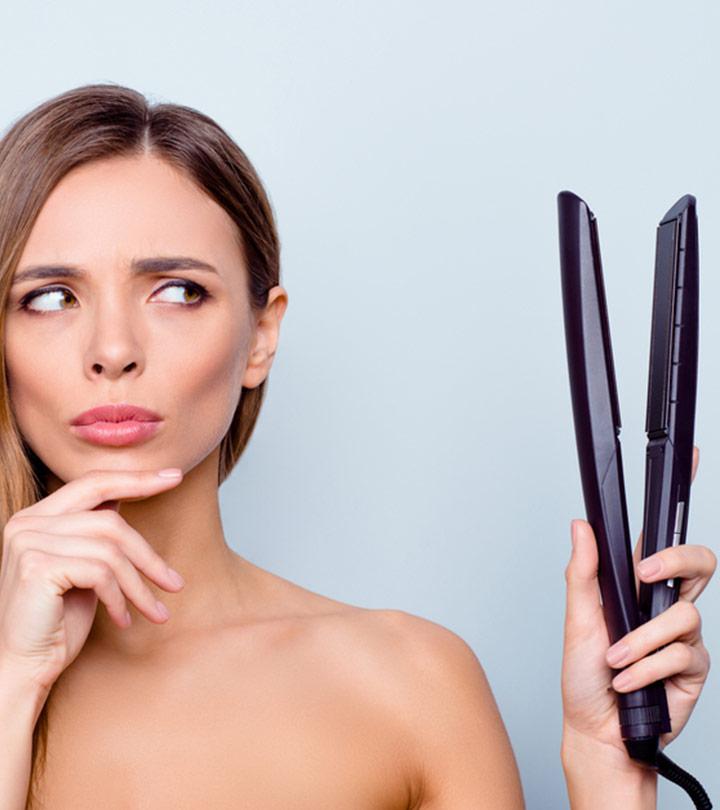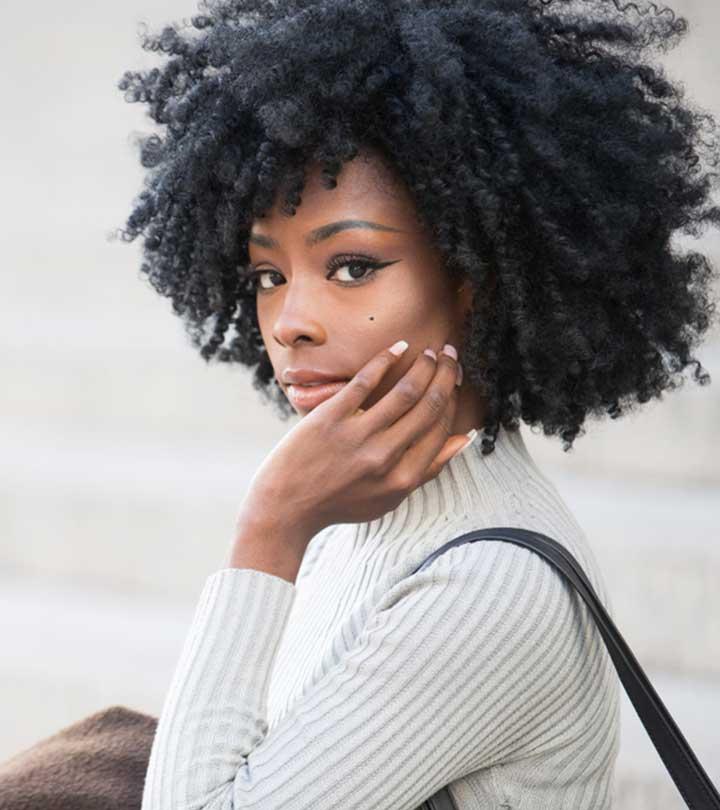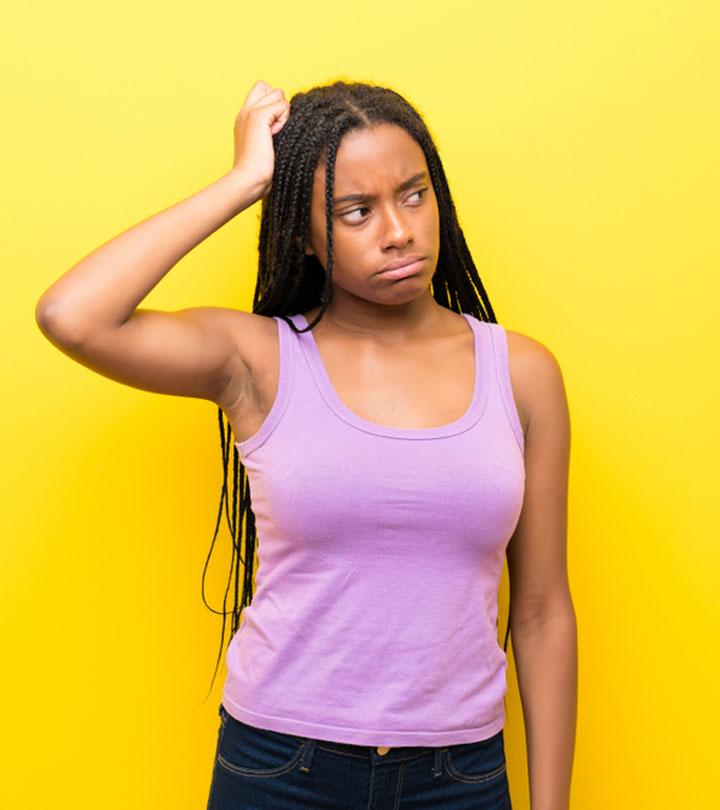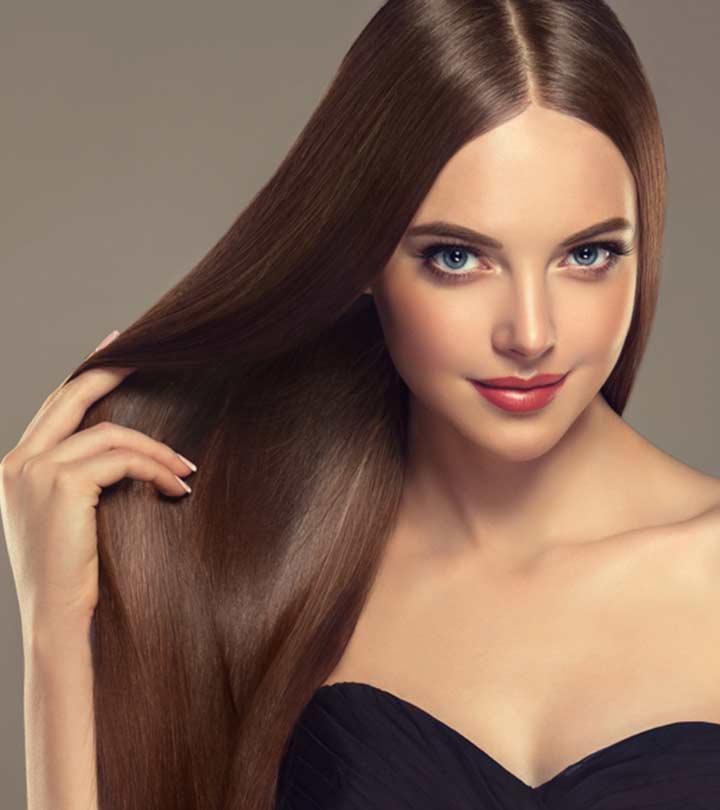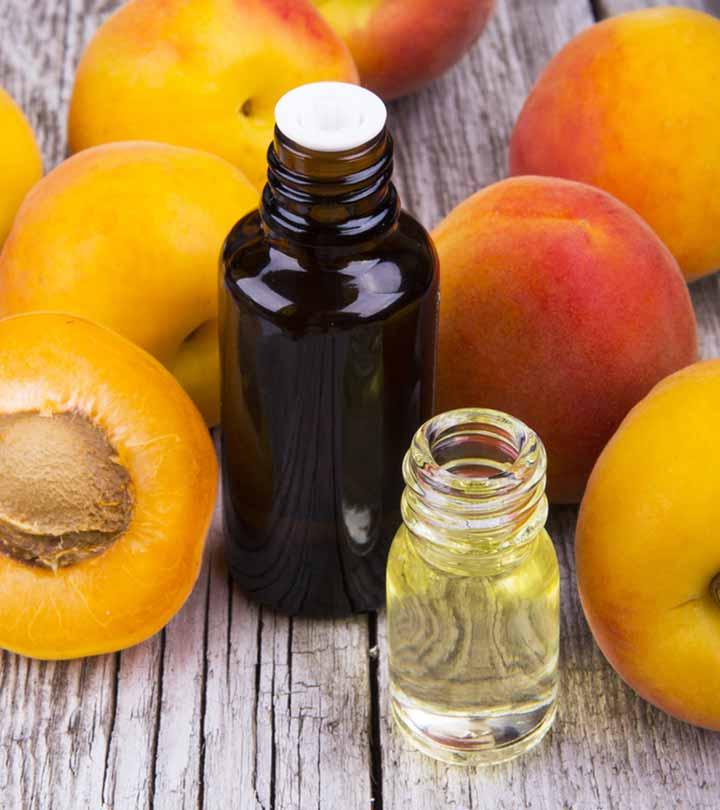Dandruff Vs. Dry Scalp: Symptoms, Differences, And Treatment
Know the root cause of your scalp condition as a flaky scalp is not always due to dandruff.
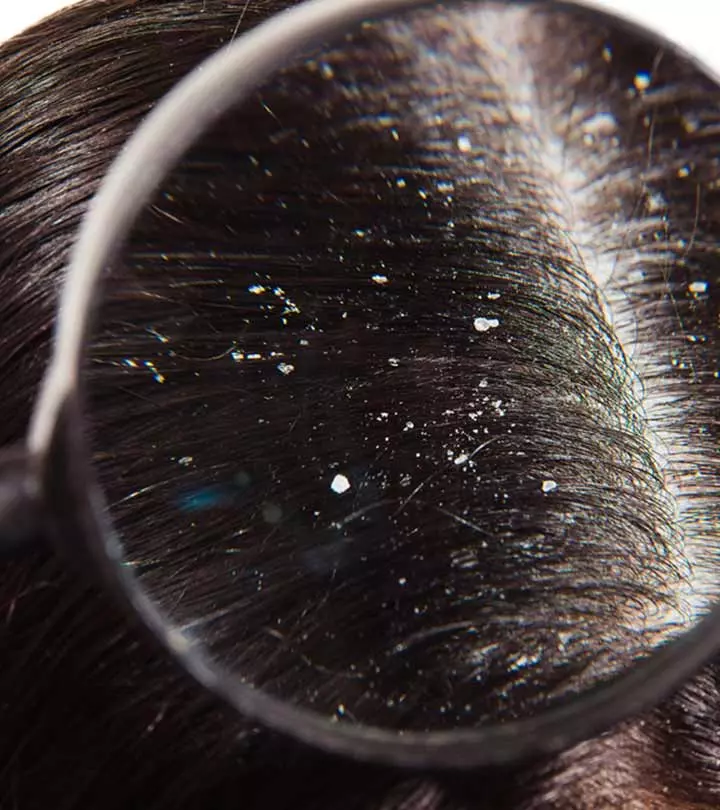
Image: Shutterstock
Dandruff vs. dry scalp – which one do you have? The flakes falling from your scalp could be a result of either. Though these two conditions may look similar, there are some key differences between the two. While dandruff is usually caused by a fungus called Malassezia furfur, dry scalp is a result of dehydration. Keep reading to learn about the differences between these two scalp conditions and what causes them.
In This Article
What Is Dandruff
Dandruff is a common scalp disorder that nearly affects everyone irrespective of age and gender (1). It mainly affects those at puberty and in the middle age. Dandruff primarily occurs on the scalp and causes it to itch and flake without any inflammation (2).
What Is A Dry Scalp
A dry scalp is denoted by itching and flaking. It might be a sign of pruritus (3). Research shows that scalp flaking could often be caused by sebaceous activity (4). Many factors can cause a dry scalp. These can include weather conditions, unbalanced sebum production, or improper hygiene and health care. Medical conditions like psoriasis and eczema may also cause scalp dryness. This condition is characterized by small, white flakes.
Causes Of Dandruff
Dandruff is most commonly caused by a fungus called Malassezia furfur. Research shows that people with dandruff tend to have twice the concentration of Malezzisia furfur than those without it (1). It can be caused by bacteria too.
- Other causes of dandruff include excess exposure to sunlight, harsh combing techniques, excessive shampooing, and accumulation of dirt, grime, and product residue.
- Using certain cosmetic products may also cause dandruff.
- A dry environment can push your scalp into overdrive, making it produce excessive sebum and leading to dandruff.
Causes Of A Dry Scalp
Scalp flaking is primarily caused by sebaceous activity (4). The sebaceous glands produce sebum (a complex oil containing triglycerides and fatty acids, wax esters, squalene, cholesterol esters, and cholesterol). Lesser sebum secretion causes the scalp to become undernourished and flaky. Following are the other causes of a dry scalp:
- Overuse of shampoos that may dry hair out.
- Fungal and bacterial infections.
- An undernourished scalp that produces less sebum.
- Excessive heat or cold.
- Thermal damage from the overuse of styling tools.
- Hair dyes and colors that contain harmful chemicals (5).
- Lack of a hair care routine involving deep conditioning treatments, hot oil massages, hair packs, etc.
| S.No | Dandruff | Dry Scalp |
| 1. | The presence of Malassezia furfur | Decrease in sebum production |
| 2. | Bacterial infections | Bacterial infections |
| 3 | Overshampooing | Overshampooing and overuse of styling products |
| 4 | Dirt and product residue | Nutrient deficiencies |
| 5 | Exposure to sunlight | Weather conditions |
| 6 | Use of certain cosmetic products | Hair dyes and colors |
| 7 | Frequent harsh combing | Improper hair care routine |
Dry Scalp Vs. Dandruff: The Difference
Dandruff is characterized by fine, loose white or gray flakes, while a dry scalp produces smaller and powdery white flakes. Overproduction of sebum creates an oily scalp, which causes dandruff. Underproduction of sebum causes the scalp to dry out, flake, and itch.
Dandruff is mainly caused by a fungal infection, while a dry scalp can be caused by pre-existing skin conditions like eczema or psoriasis, weather conditions, or excessive washing. If not treated on time, both conditions can aggravate and cause redness or bumps on the scalp.
 Trivia
TriviaHere are the symptoms you must look out for.
Symptoms
Certain signs and symptoms can help you determine whether you have dandruff or just an itchy scalp.
Dandruff
- Big, white or yellowish flakes paired with excessive itching.
- Oily or dry flakes.
- No noticeable inflammation.
- Only your scalp is affected.
Dry Scalp
- Small white flakes.
- Possible redness or small bumps on the scalp.
- White flakes due to a preexisting skin condition.
Let us now look at some of the treatment options for each issue.
Treatment Options
- Dandruff: Anti-dandruff shampoos can help treat dandruff. These contain salicylic acid, zinc pyrithione, selenium sulfide, keratinolytic agents, imidazole antifungal agents, hydroxy pyridones, and naturopathic agents (1). These ingredients have antifungal and antimicrobial properties. You can also try natural remedies like rosemary paired with a carrier oil to reduce dandruff (6).
- Dry Scalp: Moisturizing your scalp with deep conditioners, oils, and hair masks can help treat a dry scalp. You also may take nutrient supplements to avoid any dryness caused by nutrient deficiencies. Stop overshampooing and overstyling your hair.
 Pro Tip
Pro TipPrevention Tips
Dandruff
- Hygiene plays an important role in reducing and preventing dandruff. Wash your hair twice every week to remove dirt, product residue, and other impurities.
- Be aware of the hair products you use. Opt for natural ingredients over chemicals.
- Use anti-dandruff shampoo.
- Reduce over shampooing and excessive use of cosmetic products.
Dry Scalp
- Keep your scalp moisturized by oiling it regularly.
- Use deep conditioning treatments.
- You can also use hydrating hair packs and masks.
When Should I Consult A Doctor
Consult a doctor if you notice any of the following:
- Dandruff on other parts of your body or dandruff accompanied by inflammation and flakes
- Dandruff persisting even after the use of anti-dandruff products
- Scalp dryness paired with severe redness or inflammation and hair loss
- Scalp dryness persisting even after the application of hydrating packs, serums, masks and deep conditioning treatments
Will Anti-Dandruff Shampoos Treat A Dry Scalp
Anti-dandruff shampoos will not treat a dry scalp. In fact, these shampoos may aggravate the dryness as they remove excess sebum from the scalp. The best way to treat a dry scalp is to replenish it with hydration.
Dandruff and dry scalp are often used interchangeably. Though these conditions look similar, there are a few differences between dandruff and dry scalp. While the dry scalp is caused due to dehydration, dandruff is a result of fungal infection. If you have dandruff, you might notice white, fine flakes on your scalp while it will be small and powdery white flakes if it is a dry scalp. Following the treatment methods mentioned above can help you treat these. Maintain a regular hair care regimen and a balanced diet to ensure your hair is healthy and strong.
Frequently Asked Questions
Can you have both dry scalp and dandruff?
Yes. You can have both dry scalp and dandruff.
Should you scratch dandruff?
No. You should not scratch your scalp if you have dandruff. It might worsen the condition and lead to inflammation and swelling.
References
Articles on StyleCraze are backed by verified information from peer-reviewed and academic research papers, reputed organizations, research institutions, and medical associations to ensure accuracy and relevance. Read our editorial policy to learn more.
- Dandruff: the Most Commercially Exploited Skin Disease,
https://www.ncbi.nlm.nih.gov/pmc/articles/PMC2887514/ - Seborrheic Dermatitis and Dandruff: A Comprehensive Review,
https://www.ncbi.nlm.nih.gov/pmc/articles/PMC4852869/#R23 - A Practical Guide to Scalp Disorders,
https://www.sciencedirect.com/science/article/pii/S0022202X15526572 - The Role of Sebaceous Gland Activity and Scalp Microfloral Metabolism in the Etiology of Seborrheic Dermatitis and Dandruff,
https://pubmed.ncbi.nlm.nih.gov/16382662/ - Synthesis and Evaluation of Herbal Based Hair Dye,
https://opendermatologyjournal.com/contents/volumes/V12/TODJ-12-90/TODJ-12-90.pdf - To Study the Antidandruff Activity of Rosemary Oil, Basil Oil, Coleus Oil Over Selenium Sulfide, https://www.semanticscholar.org/paper/To-study-the-antidandruff-activity-of-rosemary-oil%2C-Patil-Gadekar/70242df2ea04bc5af510e6181e38d888b196101e?p2df
- Dandruff: the Most Commercially Exploited Skin Disease,
- Dandruff: the Most Commercially Exploited Skin Disease,
https://www.ncbi.nlm.nih.gov/pmc/articles/PMC2887514/ - Seborrheic Dermatitis and Dandruff: A Comprehensive Review,
https://www.ncbi.nlm.nih.gov/pmc/articles/PMC4852869/#R23 - A Practical Guide to Scalp Disorders,
https://www.sciencedirect.com/science/article/pii/S0022202X15526572 - The Role of Sebaceous Gland Activity and Scalp Microfloral Metabolism in the Etiology of Seborrheic Dermatitis and Dandruff,
https://pubmed.ncbi.nlm.nih.gov/16382662/ - Synthesis and Evaluation of Herbal Based Hair Dye,
https://opendermatologyjournal.com/contents/volumes/V12/TODJ-12-90/TODJ-12-90.pdf - To Study the Antidandruff Activity of Rosemary Oil, Basil Oil, Coleus Oil Over Selenium Sulfide, https://www.semanticscholar.org/paper/To-study-the-antidandruff-activity-of-rosemary-oil%2C-Patil-Gadekar/70242df2ea04bc5af510e6181e38d888b196101e?p2df
Key Takeaways
- While dry scalp and dandruff may look similar, the differences are more than skin deep.
- Dandruff is caused due to a fungal infection, while dehydration or pre-existing scalp conditions lead to a dry scalp.
- Maintaining proper hair hygiene and regularly cleansing and conditioning your scalp with appropriate hair care products can help get rid of dandruff and dry scalp over time.
Differentiating between dandruff and a dry scalp can be challenging, but an oily scalp with greasy hair and intense itching may indicate dandruff. Learn more about the two conditions and their differences by watching the video below.
Read full bio of Dr. Shruti Chavan
Read full bio of Eshna Das
Read full bio of Swathi E





